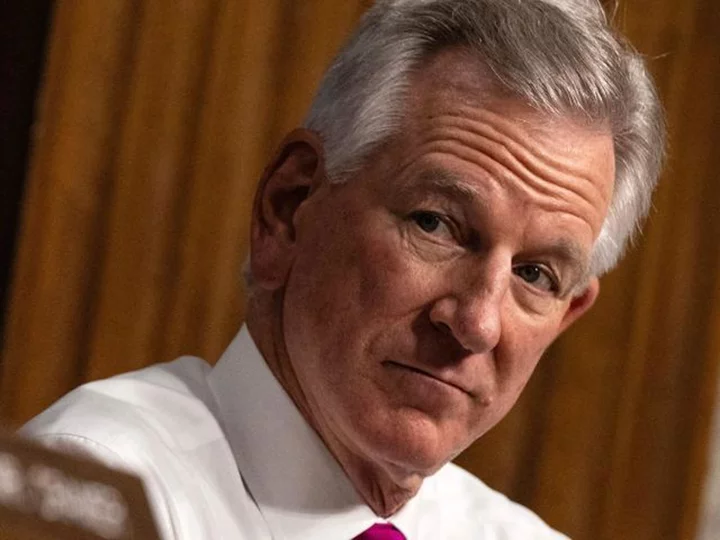Senate Majority Leader Chuck Schumer has caved to a demand by Sen. Tommy Tuberville to bring up a small handful of votes on military promotions to the Senate floor, even as he assailed the Alabama Republican's tactics.
In floor remarks Wednesday, Schumer said the Senate is "confronting his obstruction head on," but was forced to change direction in demanding the promotions be voted on as Tuberville's holds stretched into months, and key military positions remained vacant.
Tuberville has refused to drop his holds, insisting instead that Schumer set up individual votes on each nominee. Until Wednesday, Schumer has resisted, saying that all nominees should have been considered and confirmed "in a bipartisan way."
By threatening to begin procedural steps on military nominations himself, Tuberville forced Schumer's hand. Before Tuberville could carry out his threat, Schumer took procedural steps for individual votes on several top military nominees, possibly beginning as soon as Wednesday afternoon on the chairman of the Joint Chiefs of Staff, the Marine Corps commandant and the Army chief of staff.
"It's not the path the vast majority of senators on either side of the aisle want to go down, but Senator Tuberville is forcing us to confront his obstruction head on," Schumer said.
Schumer said if Tuberville insists they don't shorten the timeline for the votes, then they could stay into the weekend to confirm these three nominees.
"For the information of all senators, now that I have filed these motions, I will request consent to collapse the time and hold these votes later this afternoon," Schumer said. "I hope Senator Tuberville does not object, but if he does, senators should expect votes on Friday, and possibly Saturday to finish consideration of these nominations. Again, I will shortly move to speed up the votes on these amendments to this afternoon and I hope the Senator will not object but if he does, we'll stay till we get them done."
Schumer warned that having to give in to Tuberville's demands for votes could set a precedent where senators can use widely supported nominees as leverage for their top issues.
"The Senate runs on unanimous consent, and we depend on each other to ensure this institution functions smoothly," Schumer said. "That's how we make things happen around here. If everyone objected to everything, to get leverage for their pet priorities, it will grind this body to a halt."









